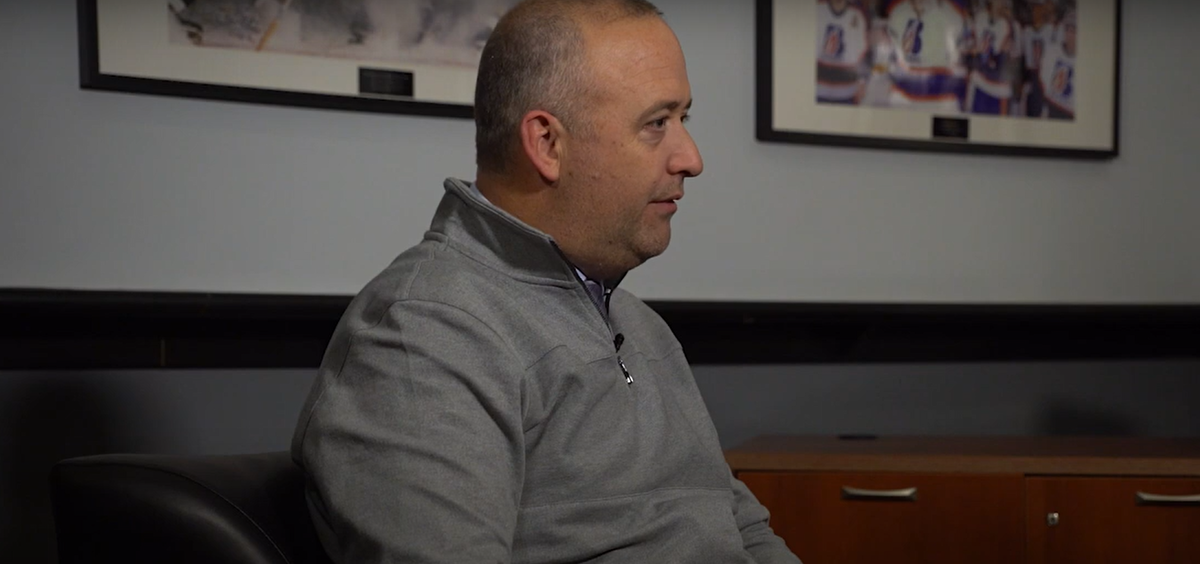
Imago
Credit: youtube.com/https://www.youtube.com/watch?v=6mHKmQ5Ojcc

Imago
Credit: youtube.com/https://www.youtube.com/watch?v=6mHKmQ5Ojcc
The NCAA and NHL share a deep-rooted relationship that continues to grow stronger each day. The collegiate level has long produced star hockey players, as we all know. However, a recent controversy on July 16 sparked debate after the WHL Commissioner appeared to look down on NCAA hockey players, making bold and surprising remarks that didn’t sit well with many in the hockey community.
Watch What’s Trending Now!
While discussing the transition players make toward professional hockey, Dan Near drew a vivid—albeit unusual—analogy: “I know people who have flown coach their whole life and then had an opportunity to get upgraded, and they sat in business class. Do you know how hard it is to go back to coach once you’ve sat in business class?” But he didn’t stop there—he added further context to drive his point home.
Near used this analogy to highlight what he views as the superior professional environment in the AHL compared to the collegiate setting. He emphasized the AHL’s tougher demands and stronger pro-style culture. According to him, players who choose the NCAA path may struggle when they eventually face the grind of the AHL. “I’m not sure that playing a Friday-Saturday schedule and then pumping iron and drinking smoothies all week is necessarily the best segue into what the AHL grind is like,” Near added. WHL Commissioner Dan Near conceded that the NCAA is “business class,” but warned that it could leave players soft and unprepared for pro-level demands.
ADVERTISEMENT
In a recent interview on @TPS_Guy’s “The Pipeline Show” WHL commissioner Dan Near concedes that the NCAA is “business class” but cautions that “playing a Friday and Saturday schedule and then pumping iron and drinking smoothies all week” will make you soft and ill-prepared for… pic.twitter.com/Fb8r8A02w9
— Greater Alberta College Hockey (@BCHL_Alberta) July 16, 2025
The WHL commissioner is essentially telling NCAA players not to treat both leagues as interchangeable paths to the NHL. But in reality, the collegiate route offers more than just competition. NCAA athletes balance education and athletics, which helps build discipline, leadership, and life skills. The college system also allows players more time to physically and mentally mature before turning pro. And now, with NIL (Name, Image, and Likeness) deals, it’s a new era of financial opportunity for student-athletes.
There’s also a clear age gap between the two leagues. AHL teams typically consist of older, more experienced players—many of whom are former draft picks close to breaking into the NHL. They’ve already adapted to the pro-style grind. On the other hand, NCAA teams are filled with younger, amateur athletes still refining their game. The jump from college to the AHL can be tough, with a faster pace, higher pressure, and greater physical demands.
ADVERTISEMENT
Dan Near’s comments have certainly reignited the debate around development paths. As hockey continues to evolve, questions about the best route to the pros will remain. The gap between college hockey and professional leagues won’t disappear overnight. But one thing is certain—NHL fans won’t tolerate anyone looking down on NCAA players or their achievements.
ADVERTISEMENT
NHL fans hit back at WHL commissioner over NCAA comments
One X user who shared Dan Near’s comments joked, “I’ll delete this (tweet) and repost it tomorrow because in this tortured analogy of his, I think he’s actually saying that the NCAA is too nice (?) and that kids are better prepared for the AHL by building character through eating gruel and sleeping on cement floors in Prince Albert.” The fan was referencing Near’s “drinking smoothies,” remark.
Top Stories
PGA Tour Pro Loses His Cool After Being Denied Entry Into WM Phoenix Open Field

Giannis Antetokounmpo All but Confirms Warriors Trade With 6-Figure Decision: NBA Rumor

Patrick Cantlay & Scottie Scheffler Disapprove of Controversial Change Happening to PGA Tour Courses
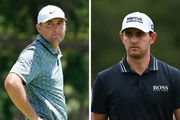
U.S. Senator Announces Bad News For NFL Fans After Donald Trump’s Ruling on ESPN’s Billion-Dollar Takeover

Brooks Koepka’s Unscathed Return Upsets Viktor Hovland as PGA Tour Pro Refuses to Hold Back
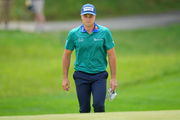
Ohio High School Football Coach Dies at 90, After Serving Community for 32 Years
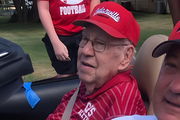
The commissioner was essentially critiquing what he sees as the relatively relaxed routines of NCAA players, suggesting they’re not working as hard as they should be. Another fan replied to the viral post, urging Near to focus on improving the WHL instead: “LOL come on @TheWHL Commissioner. NHL has multiple examples that say that’s NOT true! A number on my fav team #GoHabsGo! Up ur league’s game! There are all sorts of changes u can make to help WHL be more interesting vs NCAA.”
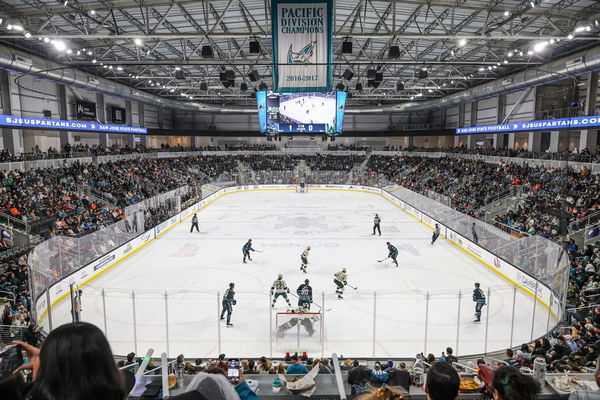
Imago
Credit: Instagram.com/@AHL
One particularly humorous response read: “Holy balls. The list of NHL stand-outs that took the NCAA path to the pros is long and distinguished. The commish’s comments come off as desperate and full of jealousy.” The underlying sentiment? NCAA hockey continues to produce elite talent, and the WHL’s criticism seems rooted in envy. The NCAA has always been a powerhouse in developing top-tier hockey talent, with names like Cale Makar among its many success stories. It’s no surprise Dan Near’s comments sparked backlash—many saw them as dismissive of a respected and proven development path.
ADVERTISEMENT
ADVERTISEMENT
ADVERTISEMENT
ADVERTISEMENT